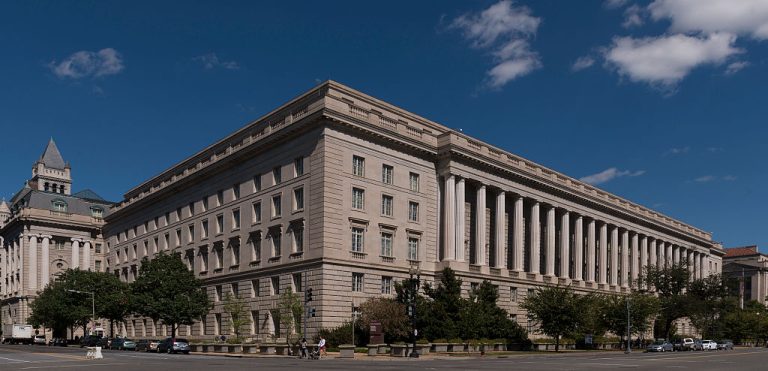On Nov. 21, the Internal Revenue Service (IRS) announced it was again delaying the implementation of a law that would require payment apps like Paypal, Venmo, or Cash App to issue tax forms called 1099-Ks to anyone who received transactions exceeding $600.
“Following feedback from taxpayers, tax professionals and payment processors and to reduce taxpayer confusion, the Internal Revenue Service today released Notice 2023-74 announcing a delay of the new $600 Form 1099-K reporting threshold for third party settlement organizations for calendar year 2023,” the U.S. federal agency wrote in a statement.
The delay does not mean an abandonment of the law, as the IRS added that it will “continue to work to implement the new law” and is treating 2023 as an “additional transition year.”
For the 2024 tax year, the IRS is planning a threshold of $5,000 “as part of a phase-in to implement the $600 reporting threshold enacted under the American Rescue Plan (ARP).”
IRS Commissioner, Danny Werfel said, “We spent many months gathering feedback from third party groups and others, and it became increasingly clear we need additional time to effectively implement the new reporting requirements.”
Success
You are now signed up for our newsletter
Success
Check your email to complete sign up
He added that “Taking this phased-in approach is the right thing to do for the purposes of tax administration, and it prevents unnecessary confusion as we continue to look at changes to the Form 1040. It’s clear that an additional delay for tax year 2023 will avoid problems for taxpayers, tax professionals and others in this area.”
The IRS said that without the delay it would have meant that an estimated 44 million 1099-K forms would have been sent out to taxpayers for the current tax year, which could have caused confusion as many transactions covered under the form may not be taxable.
READ MORE:
- IRS Plan to Monitor All Transactions Over $600 Sparks Opposition
- NY: Organized Retail Theft Costs Businesses Billions as NYPD Exodus Continues
- How Elyon College Empowers Professionals for Lasting Success Beyond Academia
$600 threshold to be enforced in 2025
The IRS intends to forge ahead with the new rules, implementing the $600 threshold for the 2025 tax year.
Erin Collins, the National Taxpayer Advocate, a wing of the IRS charged with looking out for the best interests of taxpayers, told CBS News, “The IRS’s decision to delay implementation of the new Form 1099-K reporting requirements is good news for taxpayers, tax professionals and payment processors.”
“Equally important is the IRS’s announcement today that it will adopt a phased-in approach and only require reporting of transactions totaling more than $5000 next year. Taxpayers and tax professionals need certainty and clarity about what is expected of them,” Collins added.
At least one Republican lawmaker is saying that this most recent delay in implementing the new rules is evidence that the rules are “unworkable.”
Chair of the House Ways and Means Committee, Rep. Jason Smith (R-MO), said, “Given that even Democrats now admit that this law is unworkable and are trying to rewrite a key provision, it’s time to scrap it and start over.”
Others are saying the plan is an example of government overreach.
Unsurprisingly the new rules have drawn significant push back from online selling platforms and small retailers who say the new requirements would create confusion and difficulties, particularly for people who rely on payment apps to make a living.
At the core of the confusion is determining exactly what kind of transactions are included in the scheme.
It’s unclear if transactions between friends and families or for selling used goods online would be reportable.
For instance, selling items like clothes or used furniture at a loss would trigger the generation of a 1099-K form, even though these types of sales create no tax liability.
READ MORE:
- Soaring Numbers of Chinese Nationals Arrested at US Southern Border as Communist Party Intensifies Oppression
- Chinese Persecution Survivor Warns of Transnational Repression in the West
- US Economy Headed for Soft Landing: Bank of America CEO
What this means
According to the IRS, what this means for taxpayers this year is that payment apps and online marketplaces “are only required to send out Forms 1099-K to taxpayers who receive over $20,000 and have over 200 transactions.”
For next year, this threshold will drop to $5,000, as part of the phase-in strategy.
Taxpayers who could receive the 1099-K form this year include people with side hustles, small businesses, crafters and other sole proprietors.
“However, it could also include casual sellers who sold personal stuff like clothing, furniture and other household items that they paid more than they sold it for,” the IRS wrote. “Selling items at a loss is not actually taxable income but would have generated many Forms 1099-K for many people with the $600 threshold.”
The IRS expects many taxpayers to receive the form in error; however, they will still have to report the payments on their returns.
The service says, “Taxpayers who receive a Form 1099-K should review the forms, determine if the amount is correct, and determine any deductible expenses associated with the payment they may be able to claim when they file their taxes.”
If a taxpayer has sold at a loss, they are instructed to “zero out the payment on their tax return by reporting both the payment and an offsetting adjustment on a Form 1040, Schedule 1.”
Personal transactions such as birthday or holiday gifts, or sharing the cost of a car ride or meal, are not taxable and should not be reported on Form 1099-K, the IRS says.
















